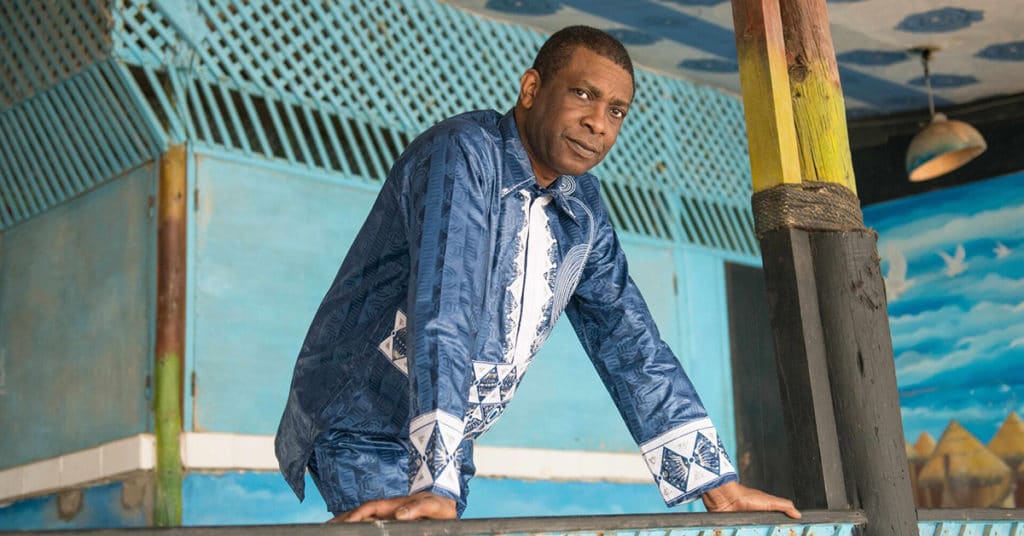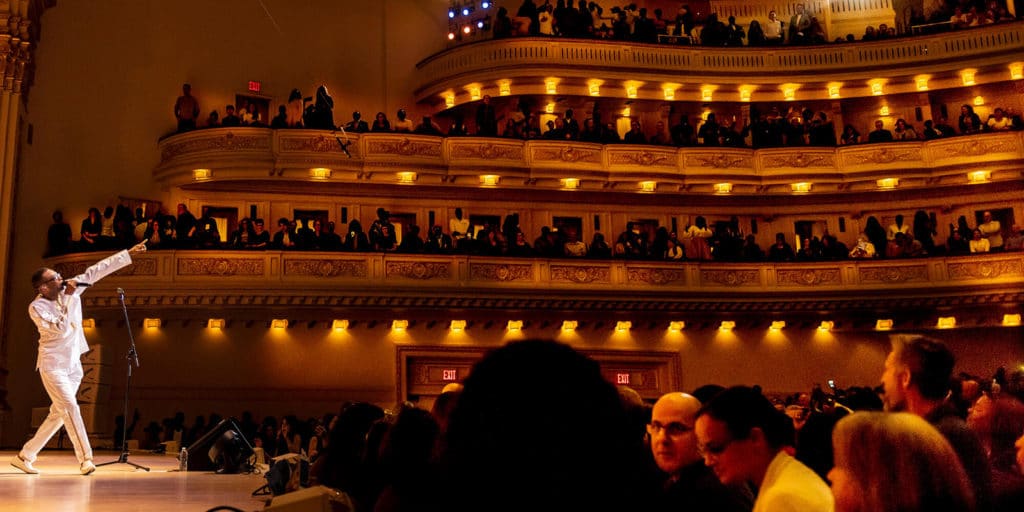Youssou N’Dour is a Senegalese singer and former politician. “Rolling Stone” magazine has called him the most famous living African singer, and he really is. He is one of Mother Africa’s leading cultural figures and was Senegal’s Minister of Tourism in 2012-13.
- Youssou N’Dour, Africa’s most famous living singer and one of the world’s great voices, plays Carnegie Hall’s Stern Auditorium / Perelman Stage on Fri, May 13, 2022 at 8pm. From $16. carnegiehall.org 🇸🇳
An Mbalax Global Fusion
N’Dour is known for Senegalese Mbalax music based on Serer sacred puberty rites, but his style of Global Music is a fusion with popular Latin music that came back to Africa. Into his MBalax tradition, N’Dour pours Cuban Rumba, Hip-Hop, Jazz and R&B.
Like West Africa itself, he represents an incredible nexus of African, Arab, European, Caribbean and American traditions. You can hear all of these influences in his music. You hear African call and response, the Arab call to prayer, Rock and Latin. This is an artist at the top of his game and his confidence is infectious. Youssou N’Dour uses his fame to help his communities. His music can be very contemplative, or so festive that you can’t help but get up and dance. And the people love him.
Youssou N’Dour

N’Dour was born in Dakar, the capital of Senegal, on October 1, 1959. Like much of West Africa, he is multicultural from birth. His father is Serer and his mother is Toucouleur. He is Muslim in the Sufi tradition. Culturally he is Wolof like most residents of Dakar.
His Serer father is from a noble family. His Toucouleur mother is a connection to the West African Griot court storytellers and musicians, but he was not raised to be a griot. His parents taught him to be open to all cultures, and look what happened.
Youssou started performing in sacred ceremonies when he was 12 years old and was soon performing outside of dance clubs because he was too young to go inside. At 16, he joined Star Band de Dakar, one of the groups recognized as a pioneer of Mbalax music. The band evolved into Étoile de Dakar (Star of Dakar) which itself evolved into N’Dour’s backing band.
As he developed as an artist, N’Dour began taking on social issues in his music. Singing and touring with English Rocker Peter Gabriel (Genesis) in 1986 (“In Your Eyes”) exposed N’Dour to the world.
His 1994 album “The Guide (Wommat)” made him a global star and provided the resources to develop businesses in Senegal. He built a media empire with a record label, radio station, newspaper, Internet cafes, and later a television station.
In New York and Paris, N’Dour ran the Great African Ball all-night dance party from 1999-2008. He still plays with “Le Gran Ball” concept which makes perfect sense because our African Diaspora music traditions are all about bringing people together.
His 2004 album “Egypt” won the Best World Music Grammy. At press time, he had six Grammy nominations. Between 2008-10, N’Dour and filmmaker Elizabeth Chai Vasarhelyi made the documentary “I Bring What I Love” about recording the “Egypt” album.
N’Dour ran for Senegal president in 2012 and served as Minister of Culture and Tourism in 2012-13. Today he is a global activist musician.
In 2021, N’Dour released his album “Mbalax” with his backing band now called Le Super Étoile de Dakar (Dakar All-Stars). Its songs speak to many of the social issues faced by West Africa and the world. The Mbalax tradition begins in puberty rites that enable the transition from boy to man or girl to woman. In the most loving way, Youssou N’Dour’s music still calls on us to grow up, to embrace who we are, and love all of it.

Youssou N’Dour really is the Star of Dakar, and his community-oriented, multicultural perspective makes him one of the world’s guiding lights.
